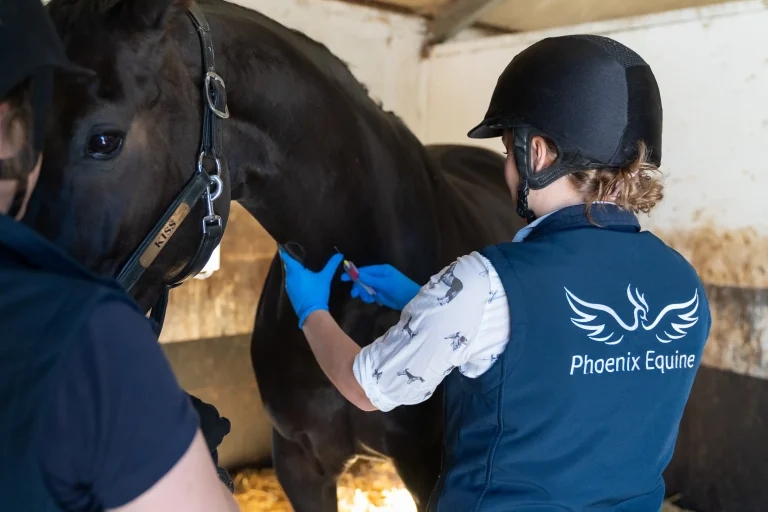30 Oct 2025
CVS Equine developed the scheme in response to issues identified by colleagues during an antimicrobial stewardship workshop.

To develop the strategy, CVS Equine held an AMS workshop for colleagues throughout the division.
A veterinary group’s equine division has launched a five-point plan to improve antimicrobial stewardship (AMS) within clinical practice.
CVS Equine will roll out the plan across its 22 sites after reviewing antimicrobial use within its practices.
The branch will develop educational resources on antimicrobial resistance (AMR) and stewardship for clients, support AMS education, training and mentorship for veterinary colleagues, review and develop clinical AMS guidelines for those in practice, address evidence gaps in diagnosis and treatment of cellulitis and reduce antibiotic usage in cases of pastern dermatitis.
A recent audit of CVS Equine’s veterinary referral hospitals revealed that nearly a third (29.7%) of hospitalised horses were prescribed antimicrobials, for simple and complicated wounds, surgical prophylaxis and to treat gastrointestinal or abdominal disease.
Further research established that critically important antibiotics were most frequently used in its practices to treat respiratory and gastrointestinal diseases, complicated wounds involving critical tissues, and foal infections.
In CVS Equine’s ambulatory practices, cellulitis was found to be the condition for which antimicrobials were most frequently prescribed.
A high level of AMR in horses with pastern dermatitis was also discovered in a clinical study of 12 CVS sites.
To develop the strategy, CVS Equine held an AMS workshop for colleagues throughout the division, where it identified key priorities and areas of focus and committed to achievable actions.
Delegates noted that clients occasionally drive antibiotic usage and may lack understanding of why a vet might be reticent to prescribe.
They also suggested keeping up-to-date with the latest AMS evidence and recommendations can be challenging in practice, prompting the development of clinical guidelines, and that confidence when prescribing can vary.
To facilitate veterinary colleague education, the group will hold AMS discussions with all new graduates while its quality improvement (QI) leads at each practice will share the latest information with colleagues; they will also undertake further training and be supported to achieve RCVS Knowledge Antibiotic Guardian status.
A divisional research project will be held to gather more evidence on diagnosing and treating cellulitis, and the group is also developing a QI project to reduce antibiotic use in pastern dermatitis cases amid growing evidence for the efficacy of topical treatments.
CVS’ equine development lead Charlotte Sinclair said: “Antimicrobial stewardship is a critical area for continuous improvement in equine practice as well as for the whole veterinary profession and one health.
“We have already made many improvements and positive changes across CVS Equine relating to antimicrobial stewardship.
“Our new five-point plan gives us crucial topics of focus, will build upon the work already achieved and aims to make an important contribution to antimicrobial stewardship.”